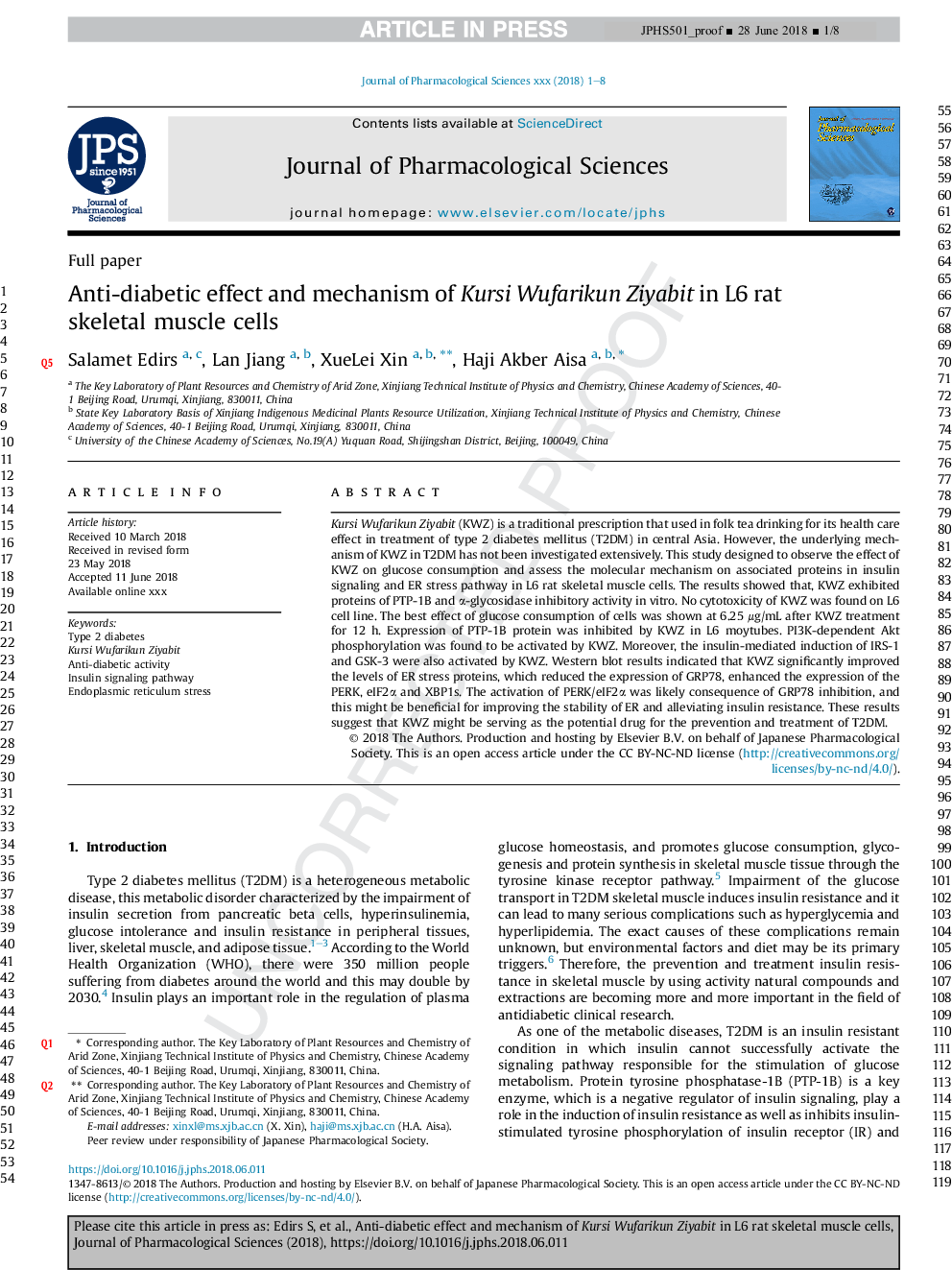| Article ID | Journal | Published Year | Pages | File Type |
|---|---|---|---|---|
| 8532776 | Journal of Pharmacological Sciences | 2018 | 8 Pages |
Abstract
Kursi Wufarikun Ziyabit (KWZ) is a traditional prescription that used in folk tea drinking for its health care effect in treatment of type 2 diabetes mellitus (T2DM) in central Asia. However, the underlying mechanism of KWZ in T2DM has not been investigated extensively. This study designed to observe the effect of KWZ on glucose consumption and assess the molecular mechanism on associated proteins in insulin signaling and ER stress pathway in L6 rat skeletal muscle cells. The results showed that, KWZ exhibited proteins of PTP-1B and α-glycosidase inhibitory activity in vitro. No cytotoxicity of KWZ was found on L6 cell line. The best effect of glucose consumption of cells was shown at 6.25 μg/mL after KWZ treatment for 12 h. Expression of PTP-1B protein was inhibited by KWZ in L6 moytubes. PI3K-dependent Akt phosphorylation was found to be activated by KWZ. Moreover, the insulin-mediated induction of IRS-1 and GSK-3 were also activated by KWZ. Western blot results indicated that KWZ significantly improved the levels of ER stress proteins, which reduced the expression of GRP78, enhanced the expression of the PERK, eIF2α and XBP1s. The activation of PERK/eIF2α was likely consequence of GRP78 inhibition, and this might be beneficial for improving the stability of ER and alleviating insulin resistance. These results suggest that KWZ might be serving as the potential drug for the prevention and treatment of T2DM.
Related Topics
Health Sciences
Pharmacology, Toxicology and Pharmaceutical Science
Pharmacology
Authors
Salamet Edirs, Lan Jiang, XueLei Xin, Haji Akber Aisa,
